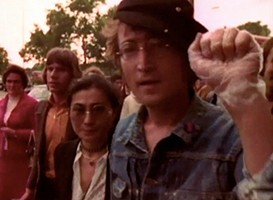Power to the people (through the Internet)
This article is a part of a series on the Our Digital Future report, our crowdsourced roadmap for Free Expression that proposes fair and balanced copyright reform for the 21st Century. See Part 1 here, and Part 2 here. One thing we hear over and over again from our community is that they value the ability of the Internet to foster creativity and advance human progress. It often provides us with solutions to some of our most stubborn problems. Here at OpenMedia, we talk about “the possibilities of the open Internet,” and it’s something we all keep coming back to. Here are just a few of the ways that we - and when I say we, I mean all of us here on this planet - have made good on these possibilities so far:
- We’ve leveraged the power of the open Internet to create a large community dedicated to keeping the playing field fair and accessible to all, or as we call it at OpenMedia: using the Internet to save the Internet.
- We’ve explored the world around us through the Internet (no, I’m not talking about Internet explorer) and can even use online tools to go beyond our own planetary borders and discover more about our universe.
- We’ve pushed ourselves to take responsibility for the earth and the people who live on it, and made widespread humanitarian mobilization possible - as evidenced by Avaaz’s recent call-out for volunteers to work with frontline organizations fighting the spread of Ebola in Africa.
- We’ve created platforms like DemocracyOS, a “user-friendly, open-source, vote and debate tool” with the potential to revive grassroots political decision-making.
These are just a few of the ways that the Internet has managed to transform how we interact with knowledge, culture, and each other. Internet users worldwide don’t want to lose those possibilities.
Which must be why, when we conducted the Our Digital Future survey, a large majority of our respondents - 72.3 percent - told us that they wanted their countries to “design copyright laws by following Finland’s example, launching a participatory multi-stakeholder process that involves the general public, including Internet users and creators as well as copyright law experts.”
Contrast that with the fact that less than one percent of our respondents agreed that their country should “design copyright laws by conforming to international trade agreements, like the Trans-Pacific Partnership (TPP), that have been decided by trade representatives and industry, with limited public consultation.”
Our community couldn’t have painted a clearer picture. This community includes people from 155 countries worldwide, as shown by this map of respondents to the Our Digital Future survey.

Throughout the two year process of consultation, engagement, action, and discussion that led to the publishing of the Our Digital Future report, over 300,000 people from around the world spoke up. They told us how important it is that we don’t hand over control of what we see and do online to Big Media conglomerates. What’s more, they told us that they didn’t want to see these companies and their lobbyists take the reigns of democracy from the hands of the people.
As Jack Yan from New Zealand told us, when he went Face to Face with Internet censorship in the TPP:
“The internet should not reflect the very uneven playing field exhibited in the real world, as that would stifle creativity and economies. Think of the gains we’ve had from internet entrepreneurship and the jobs created as a result. Would you like more of that—or stifle this medium and have less?”
We couldn’t have said it better. All those solutions we talked about earlier? Not possible without the ability to leverage the open Internet. If we allow Big Media conglomerates to shape the rules in their favour, and give advantage to entrenched, vertically-integrated companies, we may soon find ourselves with a severely-restricted ability to discover, learn, and innovate online.
If we want to democratize knowledge and culture, something we recognize as a unique ability of the Internet, we must follow Recommendation 3: Embrace democratic processes.
It’s just that simple.
Head down to OpenMedia.org/DigitalFuture to find out more about how we’re working together to create a Digital Future that includes us all.




 Take action now!
Take action now!
 Sign up to be in the loop
Sign up to be in the loop
 Donate to support our work
Donate to support our work